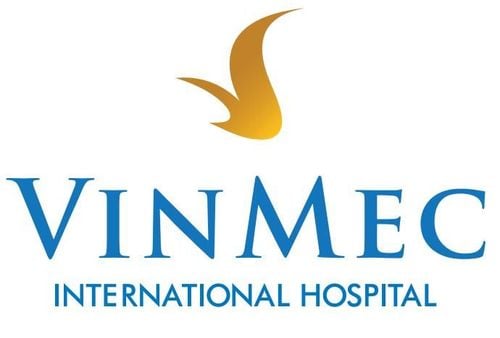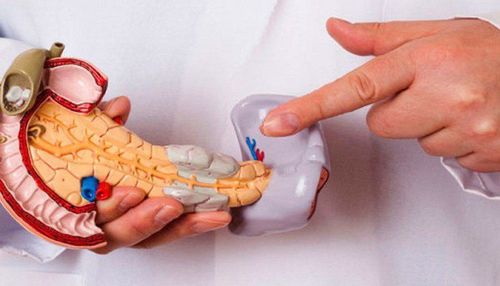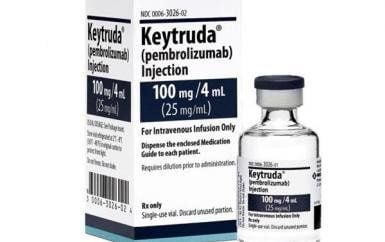This is an automatically translated article.
Posted by Master, Doctor Mai Vien Phuong - Department of Examination & Internal Medicine - Vinmec Central Park International General Hospital
Pancreatic carcinoma (PDAC) is one of the most difficult malignancies to treat. Individual patient and tumor factors need to be taken into account to provide an optimal, individualized approach. In this article, biomarkers for pancreatic cancer prognosis and some can be used to guide treatment decisions.
1. Pancreatic Carcinoma Overview
Despite great advances in the treatment of many solid tumors, survival rates in pancreatic carcinoma have not improved. Delayed diagnosis, aggressive biologics, and marked chemoresistance all contribute to this disappointing trend. Prognostic biomarkers inform the likelihood of cancer (recurrence, progression, or death) independent of the type of treatment. A biomarker is predictive if there is a difference in treatment efficacy in biomarker-positive versus negative patients. General prognostic markers, which are not specific to a given treatment regimen, can be useful in distinguishing which patients are at high risk for a poor outcome and therefore need more aggressive management. While large gene expression panels have been identified for use in the prognosis of other malignancies and some are associated with treatment response, several such markers have been well characterized in cancer. pancreatic cancer and even less are used in clinical practice.
Trắc nghiệm: Bạn biết gì về các yếu tố nguy cơ, chẩn đoán và điều trị ung thư tuyến tụy?
Ung thư tuyến tụy phổ biến thứ 10 trong những bệnh ung thư mới và là nguyên nhân thứ 4 gây tử vong do ung thư ở nam, nữ. Bài trắc nghiệm này sẽ kiểm tra kiến thức của bạn về các yếu tố nguy cơ, chẩn đoán và cách điều trị ung thư tuyến tụy.
Bài viết tham khảo nguồn: medicalnewstoday 2019
2. Prognostic markers of pancreatic cancer
Tissue-based markers offer the benefit of being more specific to tumor tissue, but at the expense of requiring more invasive collection techniques. Immunohistochemical analysis (IHC) is a widely used procedure used to visualize specific molecular markers and determine their distribution in clinical tissue samples. Although these markers may be useful in patients undergoing surgical resection, investigation is still needed to determine if there is prognostic value for these biomarkers in brush or biopsy specimens. before surgery or not. Perhaps the best-characterized therapeutic predictor biomarker is the balanced human nucleoside transporter 1 (hENT1). hENT1, ribonucleotide reductase subunits 1 and 2 (RRM1, RRM2), In a multivariate analysis, high expression of RRM2 and ERCC1, but not the others, was associated with recurrence-free survival (RFS) ) and poorer overall survival (OS). Another study found that low hENT1 expression was associated with poor RFS and OS. Since hENT1 plays a major role in Gemcitabine internalization by pancreatic cancer cells, the main role of hENT1 is as a predictor of Gemcitabine chemotherapy, for which more data are available.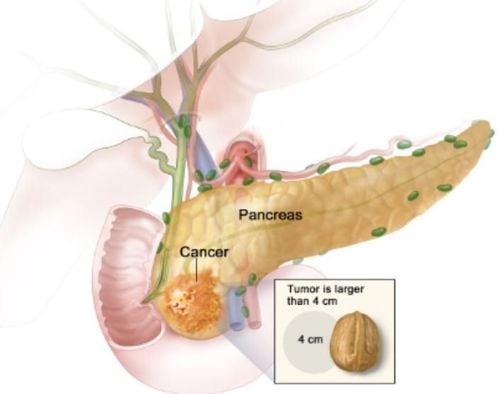
SPARC factor
Acidic and cysteine-rich secreted protein (SPARC) is a stem cell glycoprotein that undergoes epigenetic silencing in pancreatic adenocarcinoma, but is often expressed strongly at the faecal surface space between the tumor and the stroma by stromal fibroblasts. Supportive data suggest that this interaction is important for tumor progression, metastasis and chemoresistance. SPARC stromal expression was observed in all disease stages suggesting that early expression is critical for tumor progression. Strong stromal SPARC expression in patients with moderately to moderately differentiated cancer who underwent surgical resection was associated with reduced survival compared with patients without SPARC expression. Furthermore, patients with diffuse stromal SPARC expression beyond the peri-abdominal region have a significantly worse prognosis.
Most reports of cytoplasmic SPARC expression of malignant pancreatic cells show no prognostic value. Several studies found no prognostic benefit in observational cohorts, but only a strong predictive association in gemcitabine-treated patients. Elevated SPARC mRNA expression is also considered a negative prognostic marker for pancreatic carcinoma survival and may be beneficial in that this analysis can be performed on samples too small for IHC, such as from preoperative fine needle aspiration.
Vascular endothelial growth factor (VEGF)
Vascular endothelial growth factor (VEGF) is a potent stimulator of angiogenesis, thereby facilitating growth and progression tumor growth. In IHC analysis, staining for VEGF was mainly demonstrated in the cytoplasm and cell membranes of cancer cells. Increased VEGF expression is associated with poor prognosis, including lower survival and increased lymphatic invasion and lymph node metastasis. Similar to SPARC and hENT1, there are targeted therapies against VEGF, so it also has potential as a predictive marker.
Smad4 factor
Smad4 is a tumor suppressor gene involved in transforming growth factor beta (TGF-B). As evidenced by its alternative name, DPC4 (deleted in pancreatic adenocarcinoma, site 4), loss or inactivation of Smad4 is seen in 50% of pancreatic carcinomas and leads to increased cell proliferation. cells by regulating progression from G1-S in the cell cycle. Loss of Smad4 expression has often been shown to be associated with reduced survival in pancreatic carcinoma. Interestingly, one study contrastedly demonstrated that low Smad4 expression was associated with improved overall survival and, importantly, pancreatic resection only beneficial (through survival time). longer) tumors that have lost Smad4 expression.
Role of factor KRAS
KRAS (V-Ki-ras2 Kirsten mouse sarcoma oncogene) is a GTPase that activates proteins required for transduction of growth factors and cell signaling receptors other. Overall, KRAS mutations were correlated with reduced survival. Interestingly, the different mutant subtypes showed different survival times, with wild-type GGT (glycine) converted to GAT (aspartate) being the most common and the only one that was prognosticated in terms of viability. poor survival. In addition, mutation analysis performed for these KRAS mutations can be performed by quantitative polymerase chain reaction (PCR), which is cheaper, faster than other sequencing methods and uses less data. more DNA, making it easier to perform multiple molecular analyzes on the same sample.
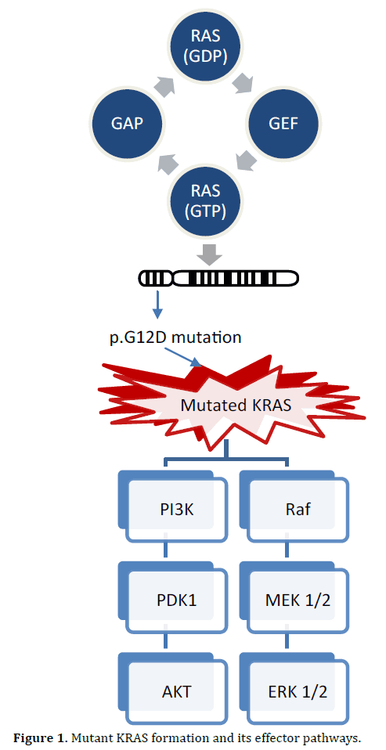
Perhaps the most exciting development in cancer therapy in the last few years has been the dramatic advancement in the use of immunotherapy. Although success is seen in some solid malignancies (melanoma, lung cancer, urothelial cancer), response rates in pancreatic cancer are very low. However, the immune response present in pancreatic cancer and emerging strategies to trigger this immune response or identify tumors with an immune-sensitive phenotype are showing great promise. In parallel with these efforts, there is growing evidence that the innate immune response in pancreatic cancer is predictive of treatment outcome. Immunohistochemical analysis identifying T-cell and myeloid cell populations in pancreatic cancer or the expression levels of negative checkpoint regulators (NCRs) demonstrated prognostic value. These markers may also serve as important predictors of future response to immunotherapy.
Conclusion
Smad4, hENT1 and SPARC have another benefit as biomarkers, in that they have been shown to be effective on preoperative biopsies. As quantitative PCR of VEGF and KRAS has also been shown to be accurate, there may be a role for these biomarkers during preoperative evaluation with smaller samples associated with biopsies.
Currently, Vinmec International General Hospital has been implementing cancer screening packages. At Vinmec, there are fully modern diagnostic facilities such as: PET/CT, SPECT/CT, MRI..., blood marrow test, histopathology, immunohistochemistry test, gene test, lab test molecular biology, as well as a full range of targeted drugs, the most advanced immunotherapy drugs in cancer treatment. Multimodal cancer treatment from surgery, radiation therapy, chemotherapy, hematopoietic stem cell transplantation, targeted therapy, immunotherapy in cancer treatment, new treatments such as autoimmunotherapy body, heat therapy...
Thanks to modern facilities, a team of qualified doctors and medical staff, perfect medical services have brought confidence, health and good quality of life to patients. medical examination and treatment at Vinmec.
Please dial HOTLINE for more information or register for an appointment HERE. Download MyVinmec app to make appointments faster and to manage your bookings easily.








